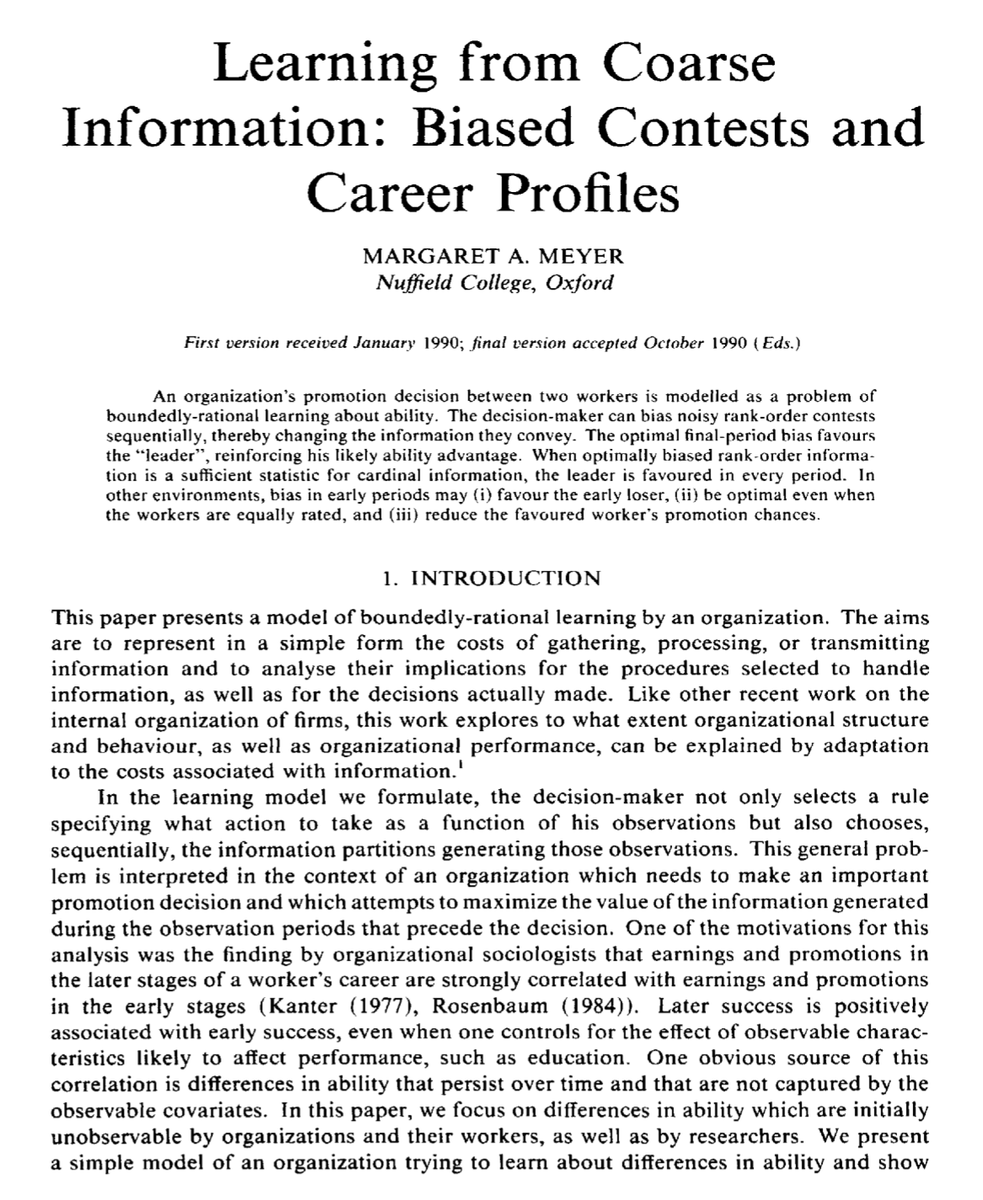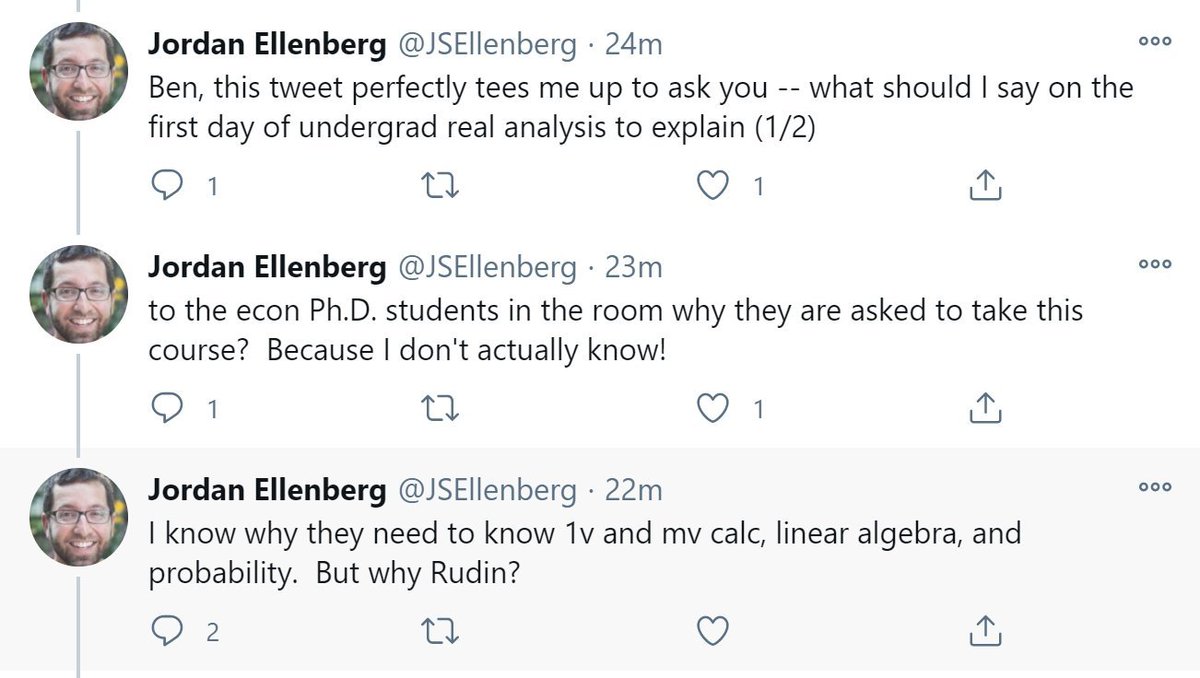
An applied mathematician I know thinks it's hilarious that economists care about formal rigor so much more than, e.g., applied physicists do.
Rigor, he says, is valuable, but other inputs currently seem to have a much higher return for advancing economic theory.
1/
Rigor, he says, is valuable, but other inputs currently seem to have a much higher return for advancing economic theory.
1/
For example, if our theorizing about long-run outcomes of social learning falls short of our potential, it's not because we forgot to check a subtle condition in applying the martingale convergence theorem in our model of their Bayesian behavior.
2/
2/
(their = the agents').
"His people" (applied mathematicians, applied physicists) would not worry about that. Instead, they would quickly work through much more "theory," but without great rigor, and use the results to refine the collective decision about how to continue.
3/
"His people" (applied mathematicians, applied physicists) would not worry about that. Instead, they would quickly work through much more "theory," but without great rigor, and use the results to refine the collective decision about how to continue.
3/
To me this seems right: if I wanted to work through a few variants of models of learning in networks, tastefully using nonrigorous approximations to go fast, I couldn't publish that. But if our work were organized like applied physics (e.g., biophysics), I could.
4/
4/
(I couldn't publish it well in economics, at least...)
Our organization of economic theory provides a working framework for normal science, in a way. Scholars face a hard challenge - producing rigorous, theoretically interesting results. They can be rewarded if they succeed.
5/
Our organization of economic theory provides a working framework for normal science, in a way. Scholars face a hard challenge - producing rigorous, theoretically interesting results. They can be rewarded if they succeed.
5/
But, of course, our field could be organized around other challenges.
Why isn't it? Maybe, given the relative scarcity of data or clear "facts" to account for, it's hard to come up with ways to assess more relaxed theorizing...
6/
Why isn't it? Maybe, given the relative scarcity of data or clear "facts" to account for, it's hard to come up with ways to assess more relaxed theorizing...
6/
One last observation: a big burst of creativity in economic theory occurred in the development of price theory, where reasoning was intuitive and models were some mix of very simple and nonrigorous.
So "physics-like" practices are not alien to the economics DNA.
7/
So "physics-like" practices are not alien to the economics DNA.
7/
But they are very alien to the current standards for publishing economic theory in prestigious outlets.
This tends to focus current attention on arguably less economically important questions where theoretically interesting exact results can be obtained, versus...
8/
This tends to focus current attention on arguably less economically important questions where theoretically interesting exact results can be obtained, versus...
8/
perhaps more interesting questions where progress, for now, would require some relaxation of rigor standards.
A guess is that another burst of creativity in economic theory will be accompanied by such a change, along with new ways of judging success.
9/
A guess is that another burst of creativity in economic theory will be accompanied by such a change, along with new ways of judging success.
9/
Progress would, in this world, remain hard. But the direction of the advances would be in different directions. And since they're directions we haven't pushed in (blocked by the rigor constraint) some of the progress is likely to be exciting.
10/10
10/10
• • •
Missing some Tweet in this thread? You can try to
force a refresh











